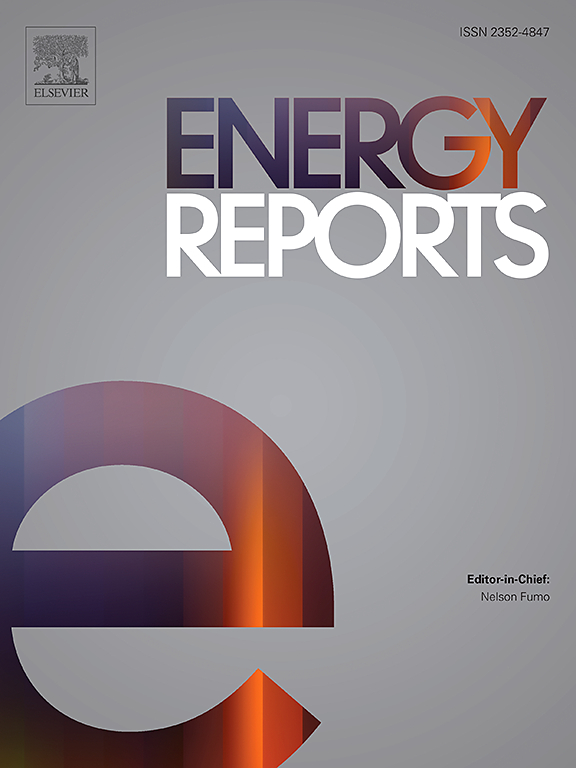气候变化、可再生能源和海湾合作委员会股票市场动态:分位数向量自回归和小波分位数框架
IF 5.1
3区 工程技术
Q2 ENERGY & FUELS
引用次数: 0
摘要
海湾合作委员会地区对石油收入的严重依赖,在向可持续经济模式过渡的过程中带来了独特的挑战和机遇。本研究采用分位数向量自回归和小波分位数相关技术,探讨了2014年8月29日至2023年12月该地区气候变化、可再生能源和市场回报之间的复杂关系。我们的研究结果表明,沙特阿拉伯、阿拉伯联合酋长国和科威特在各种经济条件下都是净影响者,强调了它们在塑造区域动态方面的关键作用。这些经济体在极端不利的条件下表现出弹性,净资产为正表明它们有能力吸收冲击。相比之下,较小的经济体,如阿曼和巴林,表现出越来越大的脆弱性。有趣的是,可再生能源指数在经济低迷时期表现出轻微的稳定效应,而温度波动对经济表现有显著影响,表明环境对其有更广泛的影响。总体连通性指数在各分位数中始终保持较高水平,突显出经济冲击和利益在该地区的快速传递。这些结果突出了这些经济体的相互联系,揭示了风险和优势在整个地区迅速扩散,特别是在危机或异常增长时期。本研究为该地区的政策制定者、投资者和利益相关者提供了宝贵的见解,有助于更深入地了解气候变化和可再生能源倡议如何影响金融市场。本文章由计算机程序翻译,如有差异,请以英文原文为准。
Climate change, renewable energy, and Gulf Cooperation Council stock market dynamics: A quantile vector autoregression and wavelet quantile framework
The Gulf Cooperation Council region's heavy reliance on oil revenue presents unique challenges and opportunities in transitioning to a sustainable economic model. This study employs quantile vector autoregression and wavelet quantile correlation techniques to explore the intricate relationships between climate change, renewable energy, and market returns in the region from August 29, 2014, to December 2023. Our findings reveal that Saudi Arabia, the United Arab Emirates, and Kuwait, serve as net influencers across various economic conditions, emphasizing their critical role in shaping regional dynamics. These economies exhibit resilience during extremely negative conditions, with positive net values indicating their capacity to absorb shocks. In contrast, smaller economies, such as Oman and Bahrain, demonstrate increased vulnerability. Interestingly, the renewable energy index exhibits a slight stabilizing effect during downturns, whereas temperature fluctuations have a significant impact on economic performance, indicating a broader environmental influence on it. The total Connectedness Index consistently remains high across quantiles, underscoring the rapid transmission of economic shocks and benefits within the region. These results highlight the interconnectedness of these economies, revealing that both risks and advantages are swiftly disseminated throughout the region, particularly during times of crisis or exceptional growth. This study provides policymakers, investors, and stakeholders in the region with valuable insights, contributing to a deeper understanding of how climate change and renewable energy initiatives are influencing financial markets.
求助全文
通过发布文献求助,成功后即可免费获取论文全文。
去求助
来源期刊

Energy Reports
Energy-General Energy
CiteScore
8.20
自引率
13.50%
发文量
2608
审稿时长
38 days
期刊介绍:
Energy Reports is a new online multidisciplinary open access journal which focuses on publishing new research in the area of Energy with a rapid review and publication time. Energy Reports will be open to direct submissions and also to submissions from other Elsevier Energy journals, whose Editors have determined that Energy Reports would be a better fit.
 求助内容:
求助内容: 应助结果提醒方式:
应助结果提醒方式:


